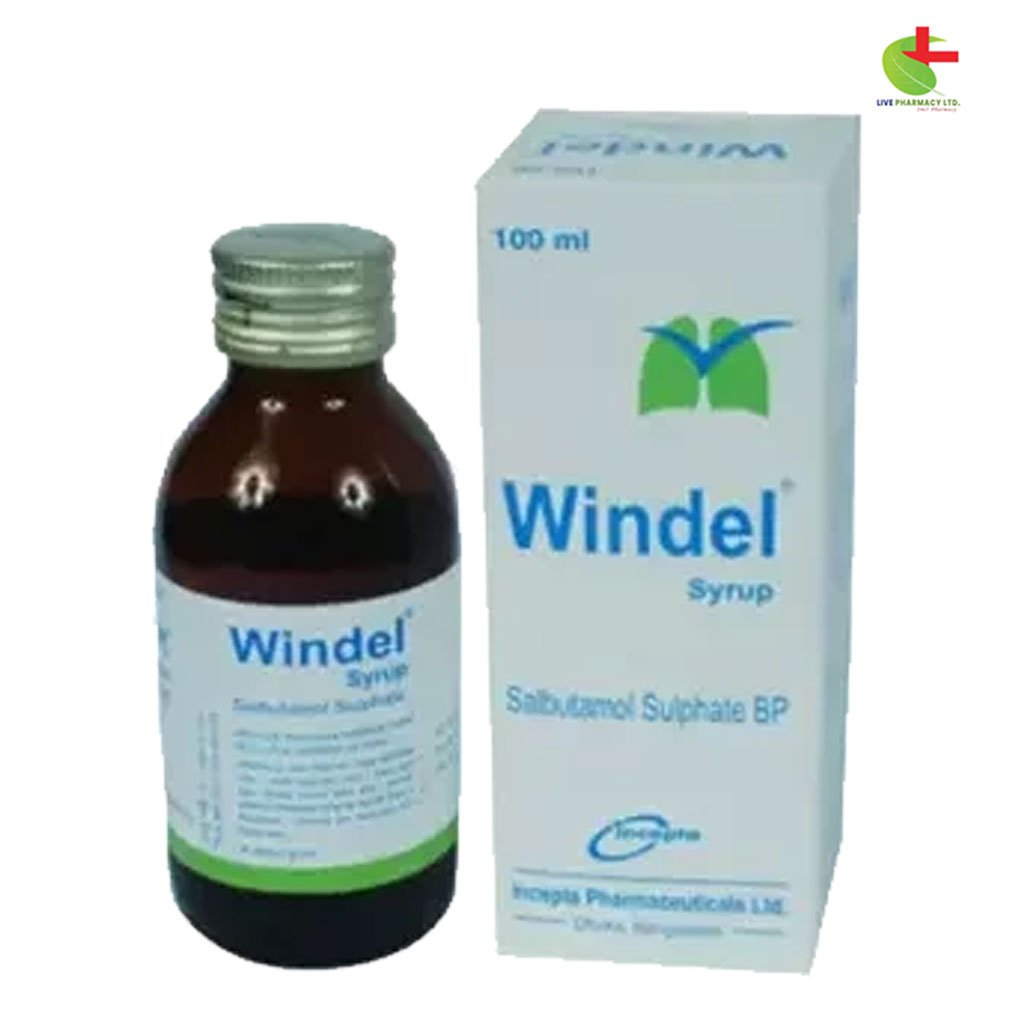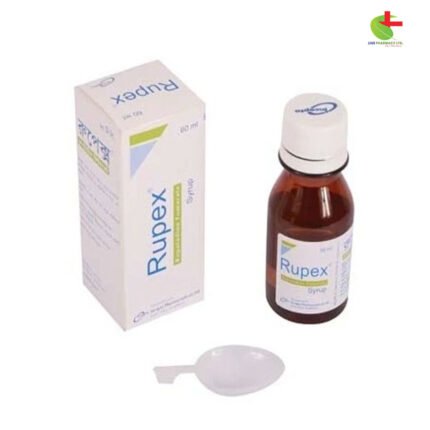Windel
22.90৳ Bottle (100ml)
- Windel is a bronchodilator used to treat asthma, chronic bronchitis, emphysema, and other airway obstruction conditions.
- It contains Salbutamol, which helps relax bronchial muscles and improve lung function.
- Available in various forms, including tablets, syrup, nebulizer solution, and inhalation capsules, for convenient administration.
- Always use under medical supervision for optimal safety and effectiveness.
 Brand
Brand
|
Incepta Pharmaceuticals Ltd |
|---|---|
 Generics
Generics
|
Salbutamol |
 Type
Type
|
Syrup |
Indications
Windel is a bronchodilator used to treat:
- Asthma
- Chronic Bronchitis
- Emphysema
- Other conditions related to airway obstruction
Note: Use Windel under the supervision of a registered medical professional.
Pharmacology
Windel contains Salbutamol, a synthetic sympathomimetic medication primarily acting on beta-2 adrenergic receptors. By stimulating these receptors in the bronchial smooth muscles, Salbutamol promotes bronchodilation, relaxing the muscle fibers and improving pulmonary function. This effect is confirmed through spirometric testing.
Dosage and Administration
Salbutamol Tablet or Syrup
- Children (2-6 years): 2.5 ml of syrup, 3-4 times daily
- Children (6-12 years): 5 ml of syrup, 3-4 times daily
- Children (over 12 years): 5-10 ml syrup, 3-4 times daily, or 2-4 mg tablet, 3-4 times daily
- Adults: 2-4 mg tablet, 3-4 times daily. Max dose: 8 mg per tablet.
Salbutamol Respirator Solution (for nebulizer use under physician guidance):
- Adults & Elderly: 0.5-1.0 ml up to four times a day. Max dose: 40 mg/day in hospital.
- Children (under 12 years): 0.5 ml, diluted with 2-4 ml of normal saline, up to four times daily. Some children may require up to 1.0 ml.
- Continuous Administration: Dilute 1-2 ml of solution with 100 ml normal saline and administer via nebulizer.
Salbutamol Injection:
For continuous intravenous infusion, dilute 5 mL of Salbutamol I.V. infusion solution (1000 mcg/mL) in 500 mL of chosen I.V. solution.
- Adults: Recommended infusion rate starts at 5 mcg/min and can be gradually increased to 10-20 mcg/min, as needed.
- Children & Adolescents: Dosage for this group has not been established.
Salbutamol Inhalation Capsule:
- Adults: For bronchospasm relief, inhale one or two capsules every 4-6 hours.
- Children (4+ years): One capsule for asthma relief, up to four times daily.
Exercise-Induced Asthma:
- Adults: 400 mcg, 15-30 minutes before exercise
- Children: 200 mcg, 15-30 minutes before exercise
Note: Always follow the guidance of a registered healthcare professional.
Side Effects
Common side effects of Windel include:
- Tremors (especially in the hands)
- Palpitations
- Muscle cramps
- Tachycardia, headaches, and peripheral vasodilation may occur with higher doses.
Pregnancy and Lactation
Use Windel during pregnancy only if the potential benefits outweigh the risks to the fetus. The safety of this medication during breastfeeding is not confirmed. Given the potential tumorigenic effects seen in animal studies, consider discontinuing either breastfeeding or the medication based on the mother’s needs.
Precautions and Warnings
Windel should be used cautiously in individuals with:
- Hyperthyroidism
- Cardiovascular conditions
- Hypertension
- Vascular disorders
- Diabetes mellitus
- Glaucoma
- Antihypertensive therapy
Overuse may cause tachyphylaxis and resistance to the drug. Hypokalemia with high doses may increase the risk of digitalis-induced cardiac arrhythmia.
Overdose Effects
Symptoms of overdose include:
- Angina
- Headache
- Nausea and vomiting
- Tremors
In case of overdose, a cardio-selective beta-blocker may be used as an antidote, though caution is necessary for those with bronchospasm history.
Therapeutic Class
Windel belongs to short-acting selective β2-adrenoceptor stimulants.
Storage Conditions
Store Windel below 30°C, away from light and moisture. Keep out of reach of children.













Reviews
There are no reviews yet.